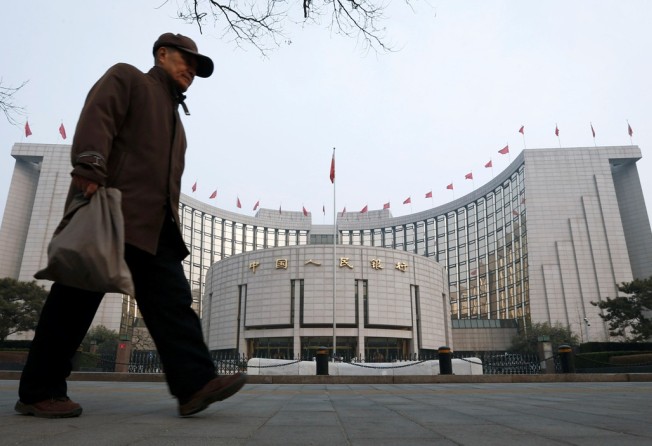
Beijing's policy on balance of payments resembles bank robbery

Beijing's latest move to simplify foreign exchange rules, along with a raft of measures designed to help mainland firms raise funds in international markets, will spur more outbound investment ...
Business, December 27
I think there is a subtext here. There often is in these official Beijing pronouncements. In this case it reads, "Ouch. Money is too tight because our balance of payments surplus is too big."
The cardinal balance of payments rule here is a simple one. The balance of payments must balance. Put another way, what comes in must go back out.
While you can occasionally use US dollars for domestic transactions within China, the authorities frown on the practice. Thus the US dollars that come in as a big trade surplus must go back out again as foreign investment.
But these two sides of the balance of payments, trade and investment, do not always match each other exactly, and then the authorities must make adjustments with their own official investment flows, in or out, and bring things back to a nice round balance of zero.
This is a problem for Beijing because not only does China routinely experience a huge inflow of US dollars from an enormous trade surplus but, instead of matching this with an outflow of US dollars for investment, it often gets a net inflow.
These have now been built up to an all-time world record of US$4 trillion.
The only way to avoid it would have been to let the yuan trade freely on world markets, which would probably have driven it to an exchange rate of 5 against the US dollar by June 2011 (6.50 in actual fact) and put a screeching brake on exports.
This would certainly have brought the balance of payments back into balance. Oh yes, it would indeed. Ouch!
Mopping up, however, has its own costs. The US dollar holders must be given yuan in exchange for their dollars, and there is only one place the PBOC can find the trillions of yuan it needs every year for this purpose. It is the same one bank robbers rely on - the high-street banks, because that's where the money is.
The PBOC's version of a hold-up is something called statutory reserves, a set percentage of bank deposits that it takes, supposedly, hah-hah, for monetary purposes. Bank robbers can tell good stories, too.
As the chart shows, the percentage at present averages 19.5, which is off the scale for any other country that has statutory reserves (and few countries do). And the commercial banks lose money on it. Their cost of funds is higher than the interest rate the PBOC pays them.
This, of course, just makes money even tighter around the system at a time when the economy is slowing down.
It also happens at a time when the balance of payments surpluses are rising again, US$375 billion for the 12 months to June, all of it to be mopped up by the PBOC. And that is why Beijing now wants to encourage outbound investment. Let's get this burden of the PBOC's back, say the authorities.
Which, say I, gives this policy the character of a temporary measure rather than of real reform. It may not outlast a reversal of balance of payments trends.